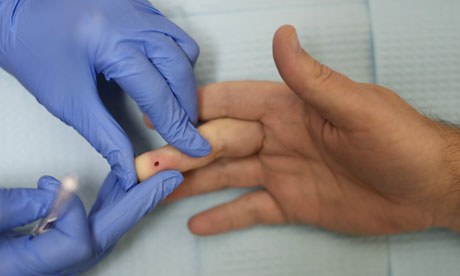
For the baby, of course, this – the first functional cure of infant HIV – is a miracle, a lottery win, an accidental medical breakthrough that will rid this child of so much more than just the virus. It will free them from decades of drugs and a lifetime of stigma. They will grow up unencumbered by the nagging knowledge that a compromised immune system, however well managed with medication, might make them more vulnerable to diseases. They will not need their own specialist HIV consultant, to be visited every few months. They will not need their internal organs scrutinised with bi-annual regularity to ensure the pills aren't damaging them too much. The child's liver, if it could, would jump out and hug the doctors who have saved it from that.
And indeed, Dr Hannah Gay, along with the team at the University of Mississippi medical centre that treated the now two-and-a-half-year-old, deserve a few billion hugs. Their intervention – opting for a beefed-up treatment for the then 30-hour-old baby – will be hailed as a creative, calculated risk that history will long applaud. It is right that the cure has reached the worldwide front pages and television screens across the globe.
I simply urge caution. We have been here before, with an adult. The so-called "Berlin patient" was, in 2008, also functionally cured. Then, as now, hope vibrated though the medical community and those living with the virus. So far, this adult functional cure has yet to be replicated. There is burgeoning optimism about a real, workable cure within our lifetime, but we are far from there yet and there is much to be gained from downplaying this latest development.
In 2007, I was interviewing British HIV-positive teenagers for a magazine article, when a troubling picture emerged. "I thought there was a cure," said one. "I didn't think it was anything worse than chlamydia," said another. And on and on came the responses: a cauldron of ignorance cooked up by the inadequacies of Britain's sex education classes. It became clear things had not changed much in the past few decades – I asked my teacher in 1989 about gay sex and was told "that isn't sex".
None of the interviewees were given sufficient information about safer sex to make informed choices. None of them were told anything about gay sex. Section 28 still haunts our youth. Teachers, gagged for so long about homosexuality, instead need to be told the opposite: you must talk about love and intimacy with the same sex; it will save lives. And so, as news breaks across the world with innumerable headlines containing the words "HIV" and "cure", will there be enough education to explain the meaning of this breakthrough?
Or will this, combined with the vague knowledge that medication has transformed the health of positive people, feed into the false notion that a condom is not necessary? Condom use has already fallen by 26% among men who have sex with men, prompting a peak in transmissions.
We must not bask in this baby news but make swift, radical changes. No child should leave any school – faith or secular – without knowing the full facts about sex, condoms and sexually transmitted infections. And the Department of Health must fund and implement radical, proactive testing programmes. When a diagnosis is given, and then, when necessary, medication, the drugs (normally) lower the viral load to undetectable levels, meaning the positive person becomes 96% less infectious. It is therefore the untested and unmedicated who are unwittingly keeping the transmission rates buoyant. With more than 22,000 people – nearly a quarter of HIV-positive people – unaware of their status, the need for testing is vital. But where are the urgent, creative initiatives?
In San Francisco two years ago, I was dawdling down Castro Street, the heart of its gay district, when a man with a clipboard (a chugger, I thought), stopped me. "Would you like an HIV test right now?" he asked – a makeshift testing clinic had been set up. Although taken aback, had I not just had one in London, I would have taken him up on the offer. Countless others had. Many are saved this way.
If the government is serious about HIV, it must reach out like this, and in our national curriculum. The Terrence Higgins trust is serious: it has recently launched a free, postal testing service. And so, as doctors celebrate saving a baby from HIV, the most powerful, meaningful way for all of us to join in is to potentially save ourselves and others too: to take the test.

